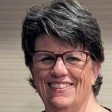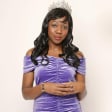Female Empowerment Speakers
You've got a lineup to build and a topic that matters.
You want someone who can speak powerfully about women's experiences, leadership, and confidence.
But how do you find female empowerment speakers who actually connect with your audience?
Not just someone with a good bio, but someone who's real, engaging, and aligned with your goals.
Whether you're planning a summit, running a podcast, or curating a speaker panel, the right voice makes all the difference.
Female empowerment speakers bring energy, perspective, and tangible takeaways to the table.
They talk about business, identity, resilience, and the systems that shape women's lives.
I've seen how the right speaker can shift the tone of an event or spark the best kind of conversation.
This guide will show you who's out there, what makes them great, and how they might fit your event.
You'll find standout women who speak with clarity, confidence, and purpose.
Scroll through to discover some of the most compelling female empowerment speakers today - or book someone who's the perfect fit for your next event.
Top Female Empowerment Speakers List for 2026
Kathy Baldwin
Empowerment by Unlearning the Crap: Leading Minds, Inspiring Souls for Collective Growth
Creg Effs
Unlocking Potential, Cultivating Resilience, Inspiring Growth - Your Empowerment Expert
Cathy Holt
Empowering women to lead boldly and transform communities
Lori Danecke
Empowering women 40+ to thrive and transform their lives
Cǎtǎlina Popoveniuc
Psychotherapist, speaker, founder of #AliveInHer global movement
Bobbie Carlton
Empowering women, igniting change, one stage at a time!
Alyson Longe
Master public speaking (in person & on livestream), speak with authority, and turn your voice into income.
Joan Michelson
Harnessing the power of sustainable innovation
Regina Cooley
Empowering women to reclaim their worth and thrive!
What Makes a Great Female Empowerment Speaker
Take someone like Chimamanda Ngozi Adichie. She doesn't rely on flashy slides or buzzwords. Instead, she tells stories that cut through the noise. Her TED Talk 'We Should All Be Feminists' didn't just go viral-it sparked global conversations and even influenced fashion brands like Dior. That's the power of authenticity and clarity.
But it's not just about being inspiring. The best female empowerment speakers are also deeply informed. They bring data, context, and lived experience. They know how to tailor their message to a startup accelerator in Berlin just as effectively as to a high school in rural Australia. They don't just speak-they listen, adapt, and engage.
And here's the kicker: they make the audience feel seen. Whether someone is just starting their career or leading a Fortune 500 company, a great speaker helps them feel like their story matters. That's the real secret-it's not about the speaker. It's about the people in the room.
So if you're looking for a standout speaker, don't just check their resume. Watch how they make people feel. That's where the magic lives.
How to Select the Best Female Empowerment Speaker for Your Show
1. Define Your Audience and Goals
- Who are you speaking to-young professionals, entrepreneurs, educators, or corporate leaders?
- What's the core message or transformation you want your audience to walk away with?
- Example: If your audience is early-stage female founders, someone like Arlan Hamilton, who built a VC fund from scratch, might resonate more than a celebrity activist.
2. Search Strategically
- Use platforms like Talks.co to browse speaker profiles by topic, region, and availability.
- Look for speakers who have appeared on similar shows or events. Check their past interviews or talks to gauge tone and style.
- Don't overlook up-and-coming voices. Sometimes the most powerful stories come from those just breaking through.
3. Evaluate Fit, Not Just Fame
- Review their speaker page for testimonials, topics, and media samples.
- Ask: Do they speak with clarity? Do they bring fresh insights? Are they engaging without being performative?
- Tip: Reach out to past hosts for honest feedback.
4. Prioritize Values and Communication Style
- Does the speaker align with your show's mission and tone?
- Are they collaborative and responsive in early communication?
- A speaker who's great on stage but difficult to coordinate with can derail your timeline.
5. Shortlist and Reach Out
- Narrow it down to 2-3 top choices.
- Use a platform like Talks.co to message them directly or submit a booking request.
- Be clear about your expectations, audience size, format (live, virtual, hybrid), and compensation.
Selecting the right speaker is part art, part strategy. Take your time, do your homework, and trust your gut when it comes to chemistry and connection.
How to Book a Female Empowerment Speaker
1. Identify Your Ideal Speaker
- Use platforms like Talks.co to browse speaker profiles by topic, availability, and region.
- Look for someone whose message aligns with your event theme and audience needs.
- Tip: Watch their past talks or interviews to get a feel for their delivery and energy.
2. Reach Out with a Clear Pitch
- Craft a concise message that includes:
- Who you are and what your event is about.
- Why you think they're a great fit.
- Key details: date, format, audience size, and compensation (if applicable).
- Example: "Hi, I'm hosting a virtual summit for women in tech and would love to feature you as a keynote speaker. The event reaches 5,000+ attendees globally."
3. Confirm Logistics and Expectations
- Once they express interest, schedule a quick call or email exchange to align on:
- Topic and title of their talk.
- Time commitment (live Q&A, pre-recorded, etc.).
- Technical requirements (slides, webcam, lighting).
- Promotion expectations (social shares, email mentions).
4. Use a Booking Platform for Smooth Coordination
- Platforms like Talks.co help streamline communication, contracts, and scheduling.
- You can manage speaker profiles, track availability, and even automate reminders.
- This reduces back-and-forth and keeps everyone on the same page.
5. Follow Up and Support
- Send a confirmation email with all agreed details.
- Offer support leading up to the event-tech checks, audience insights, etc.
- After the talk, send a thank-you note and share any feedback or audience reactions.
Booking a speaker isn't just about logistics-it's about building a relationship. When done right, it sets the tone for a powerful, memorable session.
Common Questions on Female Empowerment Speakers
What is a female empowerment speaker
These speakers come from all walks of life-entrepreneurs, educators, activists, artists, and executives. What unites them is a commitment to challenging limiting narratives and creating space for more inclusive conversations. Whether they're speaking on a TEDx stage, hosting a podcast, or leading a corporate workshop, their goal is to shift mindsets and spark action.
Unlike general motivational speakers, female empowerment speakers often focus on topics like breaking systemic barriers, navigating imposter syndrome, building confidence, and advocating for change in male-dominated industries. Think of speakers like Reshma Saujani, founder of Girls Who Code, or Melinda Emerson, known as the SmallBizLady-both use their platforms to empower women in tech and entrepreneurship, respectively.
The format can vary. Some deliver keynotes at global conferences. Others lead intimate workshops or appear on virtual summits. But regardless of the setting, their message is rooted in lived experience and a desire to uplift others.
In short, a female empowerment speaker is not just someone who talks about empowerment. She creates it, models it, and invites others to step into it.
Why is a female empowerment speaker important
They bring perspectives that have historically been sidelined or silenced. In industries like finance, tech, and politics, where women-especially women of color-are still underrepresented, these speakers help normalize leadership that looks different and sounds different. They don't just fill a quota; they expand the narrative.
Female empowerment speakers also serve as mirrors and windows. For some audience members, they reflect a version of themselves they haven't fully embraced yet. For others, they offer a glimpse into experiences they've never lived but need to understand. That dual role-representation and education-is incredibly powerful.
From a business standpoint, events that feature diverse speakers tend to perform better. Studies from McKinsey and Harvard Business Review show that inclusive programming boosts engagement, retention, and even revenue. So whether you're running a virtual summit or a corporate retreat, including a female empowerment speaker isn't just the right thing to do-it's a smart move.
And here's the kicker: these speakers don't just talk about change. They catalyze it. Their stories, strategies, and presence challenge the status quo and invite everyone in the room to think bigger, act bolder, and lead differently.
What do female empowerment speakers do
They educate. Whether it's through research-backed presentations or storytelling rooted in lived experience, these speakers offer insights on topics like gender equity, leadership, entrepreneurship, and mental wellness. For example, someone like Dr. Thema Bryant blends psychology with empowerment, helping audiences understand trauma and resilience in a deeply accessible way.
They inspire. But not in a vague, feel-good way. Their stories often highlight real challenges-bias in the workplace, lack of access to funding, cultural expectations-and how they navigated them. This makes their message relatable and actionable. Audiences leave not just motivated, but equipped.
They advocate. Many female empowerment speakers are also activists, using their platform to push for systemic change. Whether it's lobbying for equal pay, promoting STEM education for girls, or challenging harmful media narratives, they're not just speaking-they're leading movements.
They mentor. Through workshops, Q&A sessions, and follow-up resources, these speakers often provide ongoing support. They might offer coaching, courses, or community spaces where attendees can continue learning and growing.
In essence, female empowerment speakers are educators, storytellers, advocates, and mentors rolled into one. Their work doesn't stop at the mic-it starts there.
How to become a female empowerment speaker
1. Define Your Core Message.
- What do you stand for? What change do you want to inspire in women? Maybe it's confidence in the workplace, overcoming adversity, or breaking cultural barriers. Be specific.
- Example: Reshma Saujani built her platform around 'teaching girls bravery, not perfection'.
2. Build Your Credibility.
- You don't need a PhD, but you do need experience, insight, or a story that matters. Start by writing articles, doing interviews, or hosting webinars.
- Tip: Use Talks.co to create a speaker page that highlights your expertise, topics, and past appearances.
3. Start Speaking-Anywhere.
- Look for local events, virtual summits, podcasts, or community groups. Don't wait for TEDx to call.
- Pro tip: Reach out to event hosts directly. Talks.co can help you connect with hosts looking for speakers in your niche.
4. Collect Testimonials and Footage.
- Every talk is a chance to build your portfolio. Ask for feedback, record your sessions, and use clips to promote yourself.
- Tip: Add these to your Talks.co speaker page to boost your visibility.
5. Package Your Offer.
- Create a one-sheet or media kit. Include your bio, topics, audience takeaways, and contact info. Make it easy for hosts to say yes.
6. Promote Yourself Consistently.
- Use LinkedIn, Instagram, or your own email list. Share insights, behind-the-scenes moments, and clips from your talks.
- Bonus: Collaborate with other speakers or hosts to expand your reach.
Remember, you don't need to be famous to start. You just need to be clear, consistent, and committed to your message.
What do you need to be a female empowerment speaker
1. A Clear Purpose and Message
Your message is your anchor. Female empowerment is a broad topic, so niche down. Are you focusing on leadership, self-worth, entrepreneurship, or gender equity? The more specific, the more powerful your voice becomes.
2. Personal Experience or Expertise
You don't need to be a celebrity, but you do need credibility. That could come from:
- Lived experience (e.g., overcoming discrimination or building a business from scratch).
- Professional background (e.g., HR leadership, DEI consulting, coaching).
- Academic or research-based knowledge.
3. Communication Skills
You must be able to engage, inspire, and educate. This includes:
- Public speaking confidence.
- Storytelling ability.
- Adaptability to different audiences (corporate, youth, international, etc.).
4. A Platform to Showcase Yourself
Having a speaker page on platforms like Talks.co is essential. It acts as your digital resume, showcasing your bio, topics, testimonials, and videos. It also helps event organizers find and book you.
5. A Network
Connections matter. Engage with other speakers, podcast hosts, summit organizers, and communities. Talks.co also helps connect speakers with event hosts, making it easier to get discovered.
6. Marketing Tools
You'll need:
- A professional headshot.
- A speaker one-sheet or media kit.
- Social proof (testimonials, reviews, previous talks).
- A way to collect leads (email list, booking form, etc.).
In short, being a female empowerment speaker means combining passion with preparation. It's about showing up with a message that matters-and the tools to deliver it well.
Do female empowerment speakers get paid
1. Type of Event
- Corporate conferences and leadership summits tend to pay more, often ranging from $2,000 to $20,000 per talk.
- Nonprofits or schools may offer honorariums or cover travel only.
- Virtual events often pay less but can offer broader exposure.
2. Speaker's Experience and Reputation
- New speakers might start with free gigs to build their portfolio.
- Mid-level speakers with a few years of experience and a strong brand can charge $1,000 to $5,000.
- Top-tier speakers like Brené Brown or Lisa Nichols command $50,000+ per keynote.
3. Region and Industry
- In the U.S., speaking fees are generally higher than in developing countries.
- Tech and finance events often have bigger budgets than education or wellness sectors.
Pros of Paid Speaking:
- Income diversification.
- Brand authority.
- Networking opportunities.
Cons:
- Inconsistent income at first.
- High competition.
- Travel and prep time can be intensive.
Platforms like Talks.co help female empowerment speakers connect with event organizers who are actively looking to pay for quality voices. Having a professional speaker page boosts your chances of landing paid gigs.
Bottom line: Yes, they get paid-but it's a spectrum. The more value you bring, the more you can charge.
How do female empowerment speakers make money
1. Speaking Engagements
- Paid keynotes at conferences, summits, and corporate events.
- Panel moderation or workshop facilitation.
- Virtual speaking gigs (often lower fee but higher volume).
2. Coaching and Consulting
- Many speakers offer 1:1 coaching or group programs.
- Some consult with companies on diversity, leadership, or inclusion strategies.
3. Online Courses and Memberships
- Platforms like Teachable or Kajabi allow speakers to monetize their expertise.
- Example: A speaker might offer a 6-week course on 'Confidence for Women Leaders'.
4. Books and Publications
- Publishing a book boosts credibility and can generate passive income.
- Self-publishing is common, but traditional deals offer wider distribution.
5. Affiliate Marketing and Sponsorships
- Partnering with brands aligned with your message.
- Promoting tools or services to your audience.
6. Hosting Events or Summits
- Running your own virtual summit or retreat.
- Using platforms like Talks.co to attract speakers and monetize through ticket sales or sponsorships.
7. Licensing and Digital Products
- Selling templates, workbooks, or speaking kits.
- Licensing your content to organizations or schools.
Many speakers combine several of these to build a sustainable business. The key is to align your income streams with your message and audience.
How much do female empowerment speakers make
Entry-Level Speakers
- Typically earn $0 to $1,000 per talk.
- Often speak for free at local events or podcasts to build credibility.
Mid-Level Speakers
- Earn between $1,000 and $5,000 per engagement.
- May supplement income with coaching, courses, or consulting.
Established Speakers
- Command $5,000 to $20,000 per keynote.
- Often have books, media appearances, and a strong online presence.
Top-Tier Speakers
- Earn $25,000 to $100,000+ per talk.
- Include names like Mel Robbins, Lisa Nichols, and Oprah Winfrey.
Annual Income Estimates
| Speaker Level | Avg. Fee per Talk | Talks per Year | Estimated Annual Income |
|---|---|---|---|
| Beginner | $500 | 10 | $5,000 |
| Mid-Level | $2,500 | 20 | $50,000 |
| Established | $10,000 | 25 | $250,000 |
| Top-Tier | $50,000 | 30 | $1.5M |
Using a platform like Talks.co can help speakers land more gigs and increase their rates by showcasing their value to event organizers.
How much do female empowerment speakers cost
1. Experience and Reputation
- New speakers: $500 to $2,000.
- Mid-level professionals: $2,000 to $10,000.
- High-profile names: $10,000 to $50,000+.
- Celebrities or bestselling authors: $50,000 to $200,000.
2. Type of Event
- Virtual events typically cost less than in-person ones.
- Corporate keynotes are more expensive than community workshops.
- Workshops or multi-day retreats may involve additional fees.
3. Location and Logistics
- Travel, lodging, and per diem are often added on top of the speaker fee.
- International events may require visa support or extended stays.
4. Customization and Deliverables
- Some speakers charge more for customized content or post-event consulting.
- Add-ons like breakout sessions, meet-and-greets, or book signings can increase costs.
Sample Cost Tiers
| Speaker Type | Cost Range |
|---|---|
| Local Newcomer | $500 - $1,500 |
| Experienced Speaker | $2,000 - $7,500 |
| Industry Leader | $10,000 - $25,000 |
| Celebrity Speaker | $50,000 - $200,000 |
Who are the best female empowerment speakers ever
Maya Angelou. Poet, author, and civil rights activist whose speeches and writings continue to inspire generations.
Gloria Steinem. A foundational voice in the feminist movement, known for her lectures on gender equality and social justice.
Brené Brown. Researcher and bestselling author who speaks on vulnerability, courage, and leadership, especially for women in business.
Malala Yousafzai. Nobel Peace Prize winner who speaks globally on girls' education and women's rights.
Michelle Obama. Former First Lady of the United States, known for her empowering messages on education, self-worth, and leadership.
Lisa Nichols. Motivational speaker and author who rose from public assistance to global stages, inspiring women to own their stories.
Angela Davis. Scholar and activist who has spoken for decades on race, gender, and justice.
Chimamanda Ngozi Adichie. Nigerian author and speaker known for her TED Talk 'We Should All Be Feminists'.
Jane Fonda. Actress and activist who has used her platform to speak on women's rights, climate change, and social justice.
Who are the best female empowerment speakers in the world
Leymah Gbowee (Liberia). Nobel laureate who speaks on peacebuilding and women's leadership in conflict zones.
Indra Nooyi (India/USA). Former PepsiCo CEO who speaks on leadership, gender equity, and corporate responsibility.
Arianna Huffington (Greece/USA). Founder of Thrive Global, she speaks on well-being, burnout, and female leadership.
Ngozi Okonjo-Iweala (Nigeria). Director-General of the WTO, she speaks on economic empowerment and global equity.
Yassmin Abdel-Magied (Australia/Sudan). Engineer and activist who speaks on unconscious bias and intersectionality.
Sheryl Sandberg (USA). Former COO of Facebook and author of 'Lean In', she focuses on women in tech and leadership.
Zainab Salbi (Iraq/USA). Founder of Women for Women International, she speaks on war, trauma, and resilience.
Simone de Beauvoir (France). Though no longer living, her writings and lectures laid the groundwork for modern feminist thought.
Minda Harts (USA). Author of 'The Memo', she speaks on equity for women of color in the workplace.
Common myths about female empowerment speakers
1. "Female empowerment speakers only talk about gender issues."
This is a narrow view. While gender equity is often a core theme, many female empowerment speakers cover a wide range of topics: entrepreneurship, leadership, mental health, financial literacy, and more. For example, Lisa Nichols speaks powerfully on personal transformation and business growth, not just gender dynamics. The empowerment lens simply means they're focused on elevating voices and creating access.
2. "They're all extroverts who love the spotlight."
Not true. Some of the most impactful speakers are introverts who've learned to use their voice with intention. Take Susan Cain, author of "Quiet". Her TED Talk on the power of introverts has over 30 million views. Empowerment doesn't require a booming voice or a stage presence-it requires clarity, conviction, and connection.
3. "You need a massive social media following to be taken seriously."
While a strong online presence helps, it's not a prerequisite. Many speakers build their reputation through workshops, local events, or industry-specific conferences before ever going viral. Think of grassroots leaders in rural communities or educators in underserved regions-they're empowering others without a blue checkmark.
4. "Female empowerment speakers are only relevant to female audiences."
This one's especially limiting. Empowerment is for everyone. Speakers like Chimamanda Ngozi Adichie speak to global audiences, including men, about feminism, identity, and power. The goal isn't exclusion-it's inclusion. And the message resonates across genders, industries, and cultures.
5. "They're all saying the same thing."
This myth assumes there's a single narrative. In reality, female empowerment speakers bring diverse perspectives shaped by their backgrounds-whether they're from tech in Bangalore, politics in Nairobi, or education in Toronto. The variety of lived experiences is what makes this space so dynamic and necessary.
Case studies of successful female empowerment speakers
Then there's Bozoma Saint John. A powerhouse in corporate America, she's spoken on stages from Cannes to Harvard, blending personal narrative with business insight. Her talks aren't just about being a woman in leadership-they're about owning your identity, even when it doesn't fit the mold. She once said, "I don't code-switch. I bring my whole self to work." That authenticity resonates far beyond the boardroom.
In Southeast Asia, Nila Tanzil has used her platform to advocate for literacy and education in Indonesia's remote islands. She doesn't just speak-she acts. Her talks often center around her work with Taman Bacaan Pelangi (Rainbow Reading Gardens), inspiring others to turn advocacy into action. Her influence has grown through regional conferences and TEDx stages, proving that impact isn't limited to Western audiences.
Closer to the entertainment world, Jameela Jamil launched the 'I Weigh' movement and quickly became a sought-after speaker on body image and media representation. Her talks are raw, often humorous, and deeply personal. She challenges norms with a mix of pop culture savvy and unapologetic honesty.
What ties these women together isn't a single topic or style-it's their ability to connect. Whether they're addressing global policy or personal trauma, they speak with purpose. And that's what makes them unforgettable.
Future trends for female empowerment speakers
- Hybrid speaking formats are becoming the norm. Post-2020, virtual events aren't just a backup-they're a strategy. Female empowerment speakers are now expected to deliver impact both on stage and on screen. This opens doors for speakers in remote regions or those balancing caregiving roles.
- Intersectionality is front and center. Audiences are no longer satisfied with one-dimensional narratives. Speakers who address the intersections of race, gender, class, and ability-like disability rights advocate Haben Girma-are gaining traction. Empowerment is more nuanced, and speakers who reflect that complexity are in demand.
- Corporate demand is rising. Companies are investing in DEI (diversity, equity, inclusion) training, and they're turning to female empowerment speakers for authentic voices. This isn't just about keynote slots-it's about long-term partnerships, internal workshops, and culture-shifting conversations.
- Micro-influence is gaining ground. You don't need a million followers to be influential. Speakers with niche expertise-say, empowering women in STEM in rural India or mentoring Latina entrepreneurs in the US-are building loyal communities and getting booked for highly targeted events.
- AI and tech are reshaping content delivery. Tools like real-time translation, virtual reality stages, and AI-driven audience analytics are changing how speakers prepare and engage. Those who adapt early will have a serious edge.
As we look ahead, the most successful female empowerment speakers will be those who stay agile, stay authentic, and stay connected to the communities they serve. The mic is no longer just on stage-it's in your pocket, on your feed, and in every Zoom room you enter.
Tools and resources for aspiring female empowerment speakers
Canva. Not just for social posts-use it to design professional slide decks, one-sheets, and promotional materials. Their templates are a lifesaver for non-designers.
Toastmasters International. A classic for a reason. Whether you're in a big city or a small town, Toastmasters clubs offer a low-pressure space to refine your public speaking skills and get real-time feedback.
LinkedIn Learning. Offers courses on storytelling, presentation skills, and personal branding. Look for instructors like Chris Croft or Jessica Chen who focus on confident communication.
The Ellevate Network. A community of professional women with regular events, webinars, and speaker opportunities. Great for networking and staying informed on industry trends.
Otter.ai. Use it to transcribe your talks, analyze your speaking patterns, or repurpose content into blog posts and social captions. Super helpful for refining your message and tracking how you evolve over time.
Eventbrite. Not just for finding events-use it to host your own workshops or virtual keynotes. Build your audience by creating your own stage when others aren't offering one.









